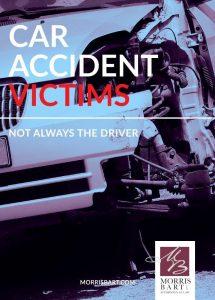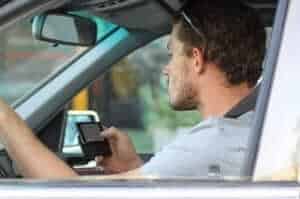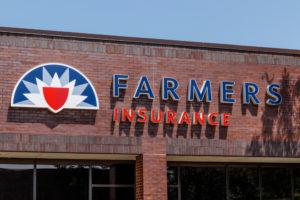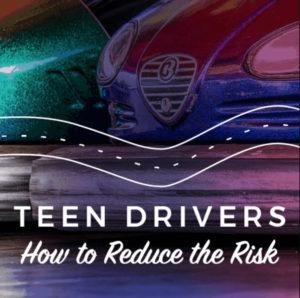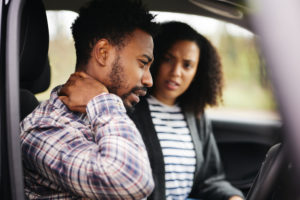
Alabama law generally allows victims of car accidents to hold the negligent driver or other liable parties legally responsible for the losses and expenses they incurred because of the crash. Our attorneys help victims seek money damages based on their accident cases. However, the details of how this works depends on the type of crash, the applicable laws, and other facts of the case.
Learn more about the most common Alabama car accident legal scenarios below:
Common Types of Traffic Collisions
The most common types of traffic accidents occur when two passenger vehicles collide. They can cause injuries, fatalities, property damages, and other expenses and losses. In general, victims can hold the at-fault driver legally responsible for their related damages by filing an auto liability insurance claim or a lawsuit in the local civil court.
Proving these cases and the details needed to hold the at-fault driver liable may differ based on the situation and what led to the crash. To recover damages, these are the details you need to know:
Rear-End Wrecks
Rear-end collisions are the most common type of car accident. Generally, we assume the rear driver is at fault for these crashes. They should be leaving enough space and traveling at a safe speed to stop at a red light, stop sign, traffic congestion, or road hazard. To recover damages, the victim must show they did not. Alternatively, distracted driving is a common cause of these crashes.
One of the biggest challenges in these accidents in Alabama is that the state recognizes
pure contributory negligence under Golden v. McCurry (1980). This makes it impossible to pursue compensation if you contributed to your crash. The at-fault driver’s insurer often uses this as a defense for their policyholder in these cases. They may claim the driver of the front vehicle stopped short, pulled out in front of them, or engaged in other negligent actions.
Side-Impact Collisions
Side-impact crashes, often called T-bone accidents, usually occur at intersections. There are several reasons they can happen, but they almost always involve one driver not obeying a traffic signal or failing to yield to an oncoming vehicle. Because traffic lights change and drivers take turns at stop signs, these crashes can easily become a he-said-she-said situation.
Identifying witnesses, finding a video of the crash from traffic or surveillance cameras, and taking other steps to prove who had the right of way when the crash occurred are vital. Victims need to have strong evidence to show the other driver was 100 percent at fault for causing the crash and their injuries.
Head-On Crashes
Head-on collisions are often very serious, especially when they occur at high speeds. When two vehicles are moving toward one another and collide, the forces increase exponentially. These accidents can only occur under a few circumstances. This includes when a driver:
- Crosses the centerline
- Goes the wrong way on a one-way road
- Crosses the median or otherwise goes the wrong way on a divided highway
They may involve other factors, including drunk driving, distracted driving, or drowsy driving. Common evidence in these cases includes traffic camera video, witness statements, accident reconstruction, and surveys of the accident scene. In the event of a wrong-way crash, the investigation is sometimes straightforward—the vehicle going the wrong way may be easily identified by the responding police officers.
Distracted Driving
Distracted driving has become almost synonymous with cell phone use behind the wheel, especially texting and driving. However, there are many other distractions that can cause a crash, as well. Anything that affects the driver’s ability to notice an issue—such as traffic stopped ahead—and react quickly to avoid a collision counts. This includes anything that requires them to:
- Take their eyes off the road
- Take their hand or hands off the steering wheel
- Take their mind away from the main task of driving
Some common examples include picking up dropped items, tuning the radio, talking to passengers, dealing with children or unrestrained pets, and, of course, messing with their cell phone.
It is worth noting that you do not have to prove a driver was distracted to hold them legally responsible for one of these crashes. Having evidence to prove it could help, but you can recover compensation if you can show that their behavior behind the wheel caused the crash.
Reckless Driving
While they are different under the state’s traffic laws, reckless driving and aggressive driving cause accidents because the at-fault driver was careless and was not considering the well-being of others while engaging in risky behaviors. They may speed, weave in and out of traffic, pass on the shoulder, run red lights, and take other significant risks.
While you only have to prove their bad behavior that directly led to your crash in order to recover compensation, documentation of their previous driving behaviors can help the jury get a better picture of what happened if your case goes to trial. Having video evidence or witnesses who can testify about their reckless or aggressive driving can also help support your insurance claim and financial recovery.
Negligence
Most car accidents occur because of driver error. When it comes down to it, almost every crash that happens could have been prevented if only the liable parties had acted in a careful and safe way. Failure to do so is negligence. To prove negligence, we must collect evidence to show:
- The driver had a certain duty of care
- They breached the duty of care
- This caused the crash
- The victim suffered harm as a result
Because any traffic law essentially establishes a duty of care and violating it breaches that duty, these are the same four elements we need to prove in any case to show the driver caused the crash and is liable.
For a free legal consultation, call 800-537-8185
Commercial Vehicle Accidents
Commercial vehicle crashes, such as truck accidents, also commonly involve a negligent driver whose careless or reckless actions cause a crash. However, the liability in these claims is not as easy to determine. In many cases, the at-fault driver will not be the only liable party.
Alabama recognizes the legal doctrine of respondeat superior under the 1929 Alabama Supreme Court opinion in St. Louis-San Francisco Ry. Co. v. Robbins. This opinion states: “A master is responsible for the acts of his servant or agent done within the scope of his employment.”
What this means in commercial vehicle accident cases is that we can often hold the driver’s employer vicariously liable. We may file our claim against the company’s liability policy or sue them for our client’s financial recovery. Legal scenarios in these cases can depend on the type of vehicle involved and the circumstances of the crash.
18-Wheelers and Other Truck Crashes
When a truck driver causes an accident, the injuries are often significant. Tractor-trailer trucks are very large and heavy when compared to passenger vehicles. This makes it even more important that we can file a claim based on the trucking company’s liability policy instead of the policy of an individual driver. Corporations generally have much larger policies.
Proving these cases often requires us to act quickly to preserve as much evidence as possible. This usually calls for a spoliation letter. This letter, sent to the trucking company, legally obligates them to save potential evidence in the case, including the driver’s rest logs, computer data from the truck, dashcam video, and more.
Trucking companies may also be directly liable for truck accidents in some cases, such as when they hired a driver with a known history of drunk driving or who lacked the proper training and licensure for hauling certain materials.
Delivery Van Accidents
Delivery vans are everywhere now, so it is no surprise that the number of these cargo vans and trucks involved in collisions has increased in recent years. Whether they work for a package delivery company, Amazon, or a nearby business, the driver’s employer will most likely be vicariously liable for any accident.
The evidence necessary to prove the collision will depend on the circumstances and what happened, but generally, we can move forward with our insurance claim or a lawsuit when we have documentation to show:
- The driver acted negligently and caused the accident
- They were a company employee at the time
- They were engaged in tasks related to their job
- Our client suffered physical, emotional, and financial harm
Uber and Lyft Rideshare Collisions
Rideshare accidents are somewhat different from other types of commercial vehicle crashes for one reason: The drivers are not employees. Because Uber and Lyft classify their drivers as independent contractors and the drivers use their own cars, respondeat superior does not apply. The ridesharing companies are not vicariously liable for the drivers’ actions in most cases.
However, Uber and Lyft do provide large liability policies that cover victims in a rideshare or hurt by a rideshare driver when that driver is matched with a rider on their app. This policy could provide up to $1 million in coverage for injuries. There is also contingency coverage available any time the driver is logged on the app if that driver’s insurance does not cover the damages suffered.
Similar rules may apply to drivers working for food or grocery delivery apps who are on a delivery at the time of the crash.
Taxicab Accidents
When a cab driver causes a crash, whether you are a paying customer or in your own vehicle, you can pursue a case against the driver and/or the taxicab company. Some cab drivers may be owner/operators. However, they should still have insurance coverage available so victims can seek a fair settlement for their damages.
Cabs may not have the same technology as tractor-trailers, delivery vans, or other types of commercial vehicles. However, many have dashcams and other tools that could prove essential in your case. Issuing a spoliation letter to preserve any potential evidence may be important to proving what happened and who caused the crash.
Bus Crashes
Bus accident claims can become extremely complex depending on the type of bus involved in the incident. If a bus accident involves a privately owned coach, it will move forward similarly to a truck accident. However, you will need to consider how many others also suffered injuries. This could limit your recovery, so you will want an attorney who will fight for you.
Frequently, though, buses are owned or operated by public entities. Government agencies run metro transit buses and public school system fleets. Different rules apply when pursuing a case against a government agency, so it is vital that you understand this process. Deadlines may come much sooner, and your attorney may need to take specific steps within weeks of your crash, so hiring a lawyer early is vital.
Accidents That Support Criminal Charges
In some cases, a driver’s action is so reckless or irresponsible that they violate criminal laws in addition to traffic rules. When this occurs, they could face a criminal case in addition to the civil action the victim takes to recover compensation.
In general, the outcome of a criminal case—or whether there is one at all—has no bearing on the ability of the victim to hold the at-fault driver legally responsible for their damages.
Hit and Run
When the at-fault driver leaves the scene of the crash before police arrive, this violates Alabama law. In Alabama, those involved in a collision must remain on site, exchange information with others involved, and render aid to anyone who suffered injuries. Failure to do so may result in felony charges if someone was hurt in the accident.
However, these criminal charges do not do anything to help the injured victim recover compensation for their medical bills and other expenses. For this reason, we still need to pursue a civil case against them, as well.
The most difficult part of a hit-and-run crash is often identifying the at-fault driver. Police, your insurance company, or our attorneys may be able to determine the identity of the other driver through:
- Surveillance, dashcam, or traffic camera video
- Witness statements
- Information you have, such as a license plate number
- Pictures you took
- Items found at the scene of the crash that can help identify the vehicle
Drunk Driving
You do not have to prove a driver was drunk to recover compensation in a crash caused by a possibly intoxicated driver. However, if the police have proof of it, it can help victims show the insurance company or jury that the driver acted recklessly and likely caused the crash. This information may be included in the accident report filed by the responding officers. Witnesses can also help document the driver’s behavior at the scene.
Without evidence to show they were intoxicated or otherwise under the influence, these crashes become negligence cases. Victims will need to show how the driver breached a traffic law and how this caused the collision.
Click to contact our personal injury lawyers today
Other Alabama Collision Scenarios
In some cases, clients come to us unsure if their crash will support an insurance claim or lawsuit because of the circumstances surrounding it or its cause. Our lawyers can offer an assessment and help them determine their rights and options. Some of these situations could include:
Elderly and Teen Drivers
In many cases, elderly and teen drivers receive the blame for a crash simply because of their age. If your senior or teen driver was hurt in an accident, they may not be at fault, even if others seem to assume they were.
You need someone willing to consider the facts of the case, investigate what happened, and ensure that liability is assigned to the right driver before the case moves forward. Our team can review your case with you and your loved one today.
Drowsy Drivers
Drowsy driving can be almost as dangerous as drunk driving. In fact, when their excessive sleepiness occurs because of medication, they may be legally impaired. Mention to the responding officers on the scene that they seem intoxicated and note any comments they make about falling asleep. This could be vital to getting the evidence you need to prove it later on.
Uninsured Motorists
When a driver fails to carry the required insurance and causes an accident, it can lead to a major headache for the injured parties. If this happened to you, you may still have options for compensation, though. This could include:
- Your uninsured motorist coverage, which is included with auto liability insurance unless you opted out when you bought your policy, and covers economic and non-economic damages up to policy limits
- Your collision coverage and medical payments (MedPay) policy if you have them
- Your health insurance coverage for medical bills if you do not have other options
Parts Defects
A crash may occur because of a dangerous or defective part on your vehicle or the vehicle driven by someone else. This could include a brake failure, tire blowout, or steering issue. When this occurs, an investigation is needed to determine what happened.
- If the part was defective, the manufacturer might be liable for the accident and injuries.
- If the part was worn out or maintenance was not performed, the owner of the vehicle may be liable.
- In some situations, another party might be legally liable, such as a distributor who kept tires in their warehouse for too long.
You will want to work with an attorney to help you develop a case against those responsible.
Road Defects
If those responsible fail to maintain the road, right-of-way, signs, or signals, the problems that develop can cause or contribute to a crash. This supports a claim for compensation in many cases, but the liable party may be a government agency. These cases require quick attention from a car accident lawyer familiar with claims against public entities.
An Attorney From the Morris Bart Law Firm Is Here to Help You
Your best option after an Alabama accident is to reach out to connect with a
personal injury law firm for a free case review. Our team can assess your case and offer advice about your options that are specific to the details of your case. Like most car accident law offices, we work based on a contingency fee.
During this free consultation, you can get answers to the questions you have and learn how our team might approach your case if you choose to work with us. We will examine the facts of your case and determine the legal scenarios that might apply. We can discuss the things covered in this blog in more detail based on the circumstances of your crash.
Damages Recoverable in a Car Accident Claim
Our attorneys believe in recovering compensation for the damages our clients suffered whenever possible. Victims of collisions who played no role in causing the crash should not have to bear the financial repercussions that occur as a result. Some of the common damages we pursue through insurance claims and lawsuits include:
- Current and future treatment of injuries and related expenses
- Current and future loss of income from missed work
- Diminished earning capacity
- Property losses, including the damaged vehicle and other items
- Other related expenses
- Pain and suffering
- Additional non-economic damages
If your loved one passed away, you may be able to seek punitive damages in a car accident lawsuit under Ala. Code § 6-5-410. Alabama case law only allows you to recover punitive damages in a wrongful death action. Our team can explain what this means and how it affects your legal scenario and the case outcome.
Act Quickly to Meet Deadlines
Most car accident victims have up to two years to sue in Alabama under Ala. Code § 6-2-38. However, there are exceptions to this rule. In some cases, you may have only a few weeks or months to get started. This may be especially true in cases where a government agency may be a liable party, such as in a city bus accident or when the crash occurred because of poor road maintenance.
Speak to an Attorney From the Morris Bart Law Firm for Free
You can discuss your case for free today with a lawyer from one of our six Alabama locations: Birmingham, Decatur, Hoover, Huntsville, Mobile, and Montgomery. We offer free consultations so you can better understand your rights and the options you have based on the type of crash you experienced. Our lawyers know how to navigate Alabama car accident claims and lawsuits.
Call to speak with a lawyer today to get started.
Questions?Call 800-537-8185
to find a Morris Bart office near you.


